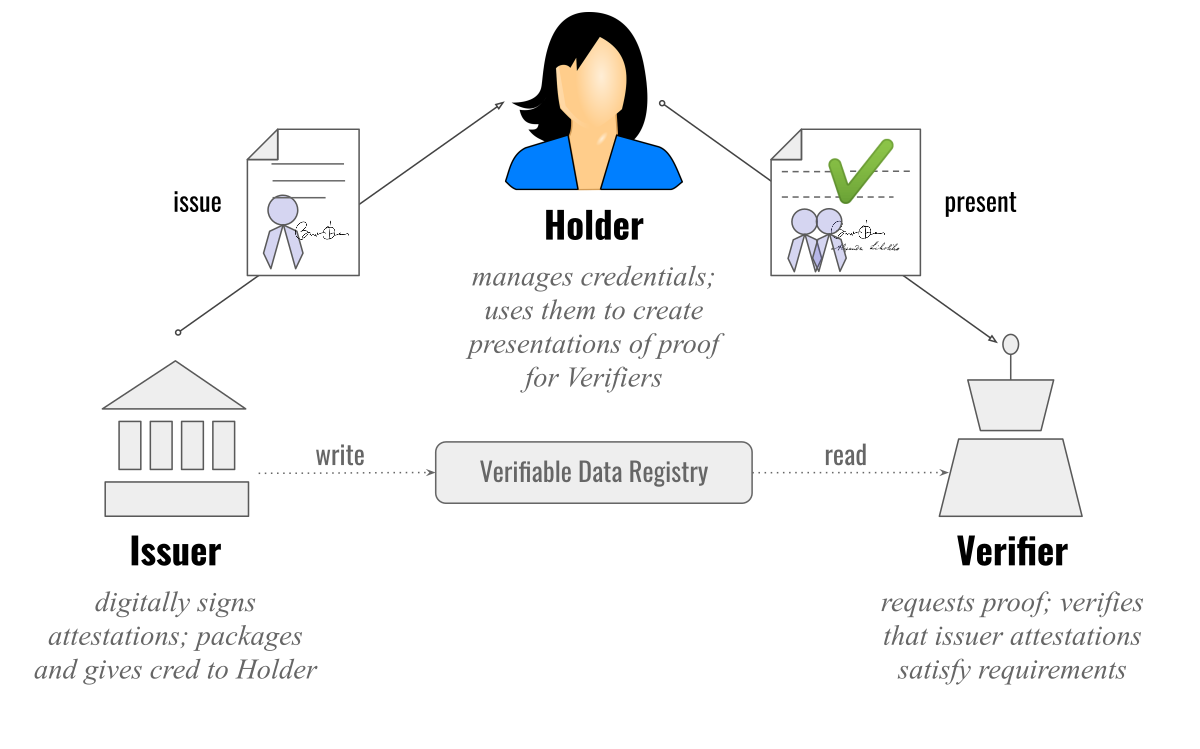Wednesday W.O.W - Verifiable Credentials🏅🔐
[5 min read] Your mid-week bite sized treat on the things you need to know about the future of money, the internet, and society. Learn how Verifiable Credentials solve a serious problem in society.
A nibble of knowledge in your inbox every Wednesday with a simple format:
What the technology is
Objective(s) - what is it trying to achieve
Why is it important to users and well as businesses & brands.
What are Verifiable Credentials?
Verifiable Credentials are digital credentials that provide proof of someone's identity, qualifications, or other attributes in a secure and tamper-proof way.
Decentralisation is key. Blockchain technology allows for the creation, issuance, and verification of credentials without the need for a centralized authority. No matter if this issuing company goes bankrupt, or a major server goes down, everything still works.
To be fully considered a Verifiable Credential, a digital credential must meet a set of technical specifications known as the W3C Verifiable Credentials Data Model. This ensures that the credential is interoperable with other systems and can be easily verified by authorized parties.
What is the objective(s) of the technology?
Fraudulent qualifications are a very real problem for society in education, employment, healthcare, finance, and government services. Verifiable Credentials can be used in all these contexts to make sure people are honest about who they are.
The verification process is designed to be privacy-preserving, meaning that the information contained in the credentials can be disclosed on a need-to-know basis, and the owner of the credentials retains control over their data.
Verifiable Credentials in a digital wallet can even replace usernames and passwords, which are often too simple or repeated.

Why is it important?
For users
Providing a more secure and tamper-evident way for end users to prove their identity and qualifications, which can help them to access services and opportunities that require identity verification.
Reducing the risk of identity theft and fraud, by providing a more secure and privacy-preserving way to share their personal information.
Greater control over their personal information, by allowing them to selectively disclose their credentials on a need-to-know basis, rather than sharing their personal information more broadly.
For businesses and institutions
Helping businesses streamline their identity verification processes by providing a secure and tamper-evident way to verify the identity and qualifications of their customers, partners, and employees.
Helping businesses comply with regulations related to identity verification, such as Know Your Customer (KYC), Anti-Money Laundering (AML) regulations, and data privacy regulations by providing a secure and auditable way to verify the identity of their customers and partners.
Helping academic institutions to provide a secure and tamper-evident way for students to prove their qualifications to potential employers or other institutions. Diploma fraud and credential misrepresentation is a growing problem in many parts of the world.
Helping to reduce the administrative burden on academic institutions by automating the process of issuing and verifying credentials, which can be time-consuming and expensive when done manually.
Verifiable Credentials can help academic institutions to innovate and create new business models, by providing a new way to exchange and verify qualifications-related data, which can open up new opportunities for collaboration and value creation.
I can help plan and implement a Verifiable Credentials Program. It’s one of the (many) consulting services I offer. Reach out to me at https://johnsonandhunt.com/reach-out
